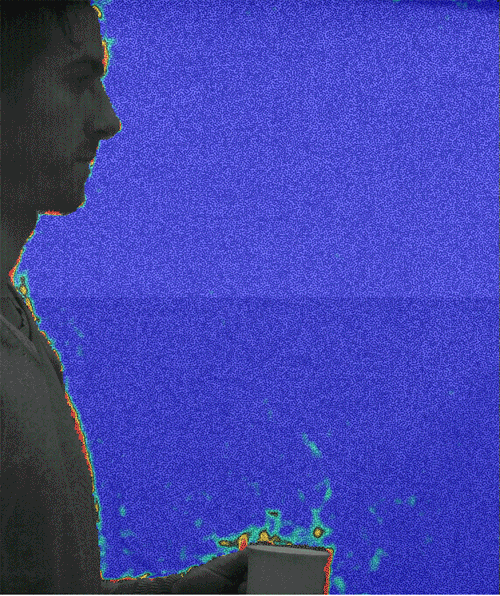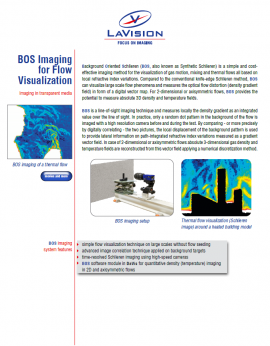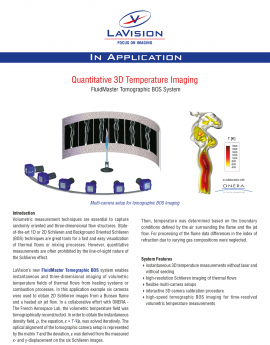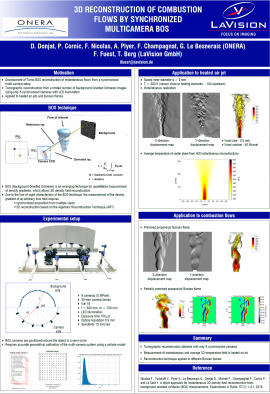
Background Oriented Schlieren: BOS Imaging
For the visualization of gas motion based on local refractive index variations Background Oriented Schlieren (BOS, also known as Synthetic Schlieren) is a simple and cost-effective alternative to laser imaging methods, because it doesn’t need any complex illumination device like a laser needed for laser imaging, and it works without seeding the flow.
BOS is a line-of-sight imaging technique and measures locally the density gradient as an integrated value over the line-of-sight. In practice, only a random dot pattern in the background of the flow is imaged with a high resolution camera before and during the test. By comparing the two pictures (or more precisely correlating the two patterns similar to the image correlation in PIV) the local displacement of the background pattern can be used to provide lateral information on path-integrated refractive index variations.
Heat Schlieren around a human hand visualized with the FlowBOS camera
- Simple flow visualization technique without laser and flow seeding
- Advanced image correlation technique applied on background target
- BOS software module in DaVis for quantitative density (temperature)
imaging in 2D and axisymmetric flows
Tomographic (Tomo) BOS Imaging
LaVision’s Tomo-BOS imaging systems measure quantitatively density or temperature fields in 3D using multiple camera BOS projections. This 3D imaging technique requires an accurate geometrical calibration of the multi-camera system and an iterative tomographic reconstruction algorithm.
- Instantaneous 3D temperature (density) fields
- Flexible multi-camera setups
- High-speed tomographic BOS imaging for time-resolved measurements




